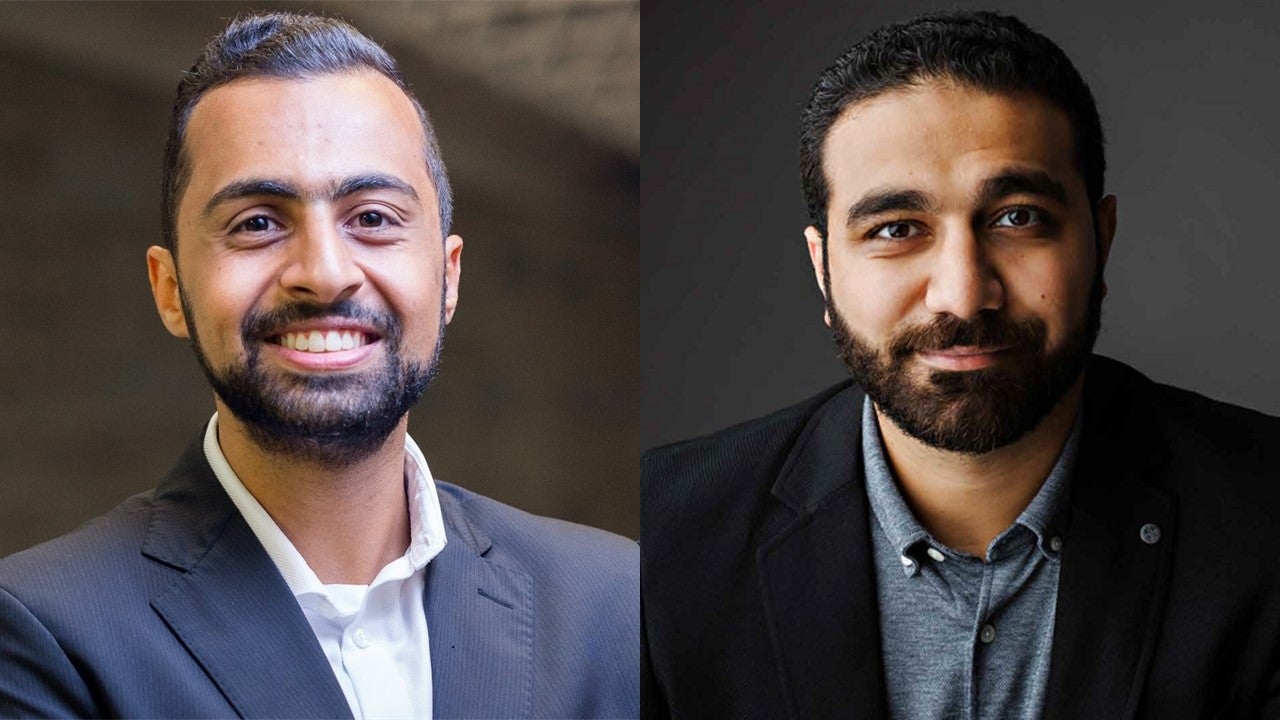Nanotechnology engineering graduates Youssef Helwa and Amr Abdelgawad are on a mission to change the way medicine is practiced with their innovative start-up, FluidAI. Both students were drawn to the Nanotechnology Engineering Program at Waterloo for its potential to explore the cutting edge of science and engineering, and they soon discovered a shared passion for using their skills to improve healthcare.
Helwa, whose mother is a surgeon, was particularly motivated by the challenges and problems facing patients recovering from surgery. He and Abdelgawad, whose family also has a medical background, began to envision how they could use their expertise in nanotechnology engineering to contribute to the biomedical field.
"I started to wonder if I could bridge engineering with current problems in medicine to come up with a way to have better results for how patients recover," said Helwa.
Throughout their undergraduate studies and Helwa's master's degree, the pair worked on developing the technology that would eventually become FluidAI. Their goal was to create a biomedical device that could detect complications in patients recovering from abdominal surgery.
Currently, healthcare providers must wait for symptoms to manifest before detecting complications arising post-surgery. FluidAI's smart monitoring system aims to change this by continuously monitoring fluid and analyzing biomarkers to provide early predictions of anastomotic leaks, the most severe complication of abdominal surgery. The system uses biosensors to monitor changes in effluent biomarkers in real-time, and the data is relayed to an analytic platform called Stream.
The device can easily integrate with existing medical workflows and connect to most catheters, making it a convenient and effective solution for hospitals and healthcare providers.
For patients, the potential benefits are significant. The system can accelerate any necessary medical intervention by detecting complications early on, reducing hospital stays and readmissions.
Helwa and Abdelgawad credit the support and guidance they received in their undergraduate Nanotechnology Engineering Program for encouraging their start-up and helping it to succeed. In fact, Helwa affectionately refers to program instructor and Lab Manager Jenn Coggan as the "godmother" of FluidAI.
Now, the pair are expanding the application of their technology to cover additional surgical applications and conditions, with the ultimate goal of changing the way medicine is practiced.
They are passionate about using data and technology to facilitate better patient recovery and outcomes, and they have a major announcement planned for January 15, 2023. It's clear that the potential of nanotechnology engineering, combined with the vision and determination of these two entrepreneurs, will continue to make waves in the healthcare industry.
